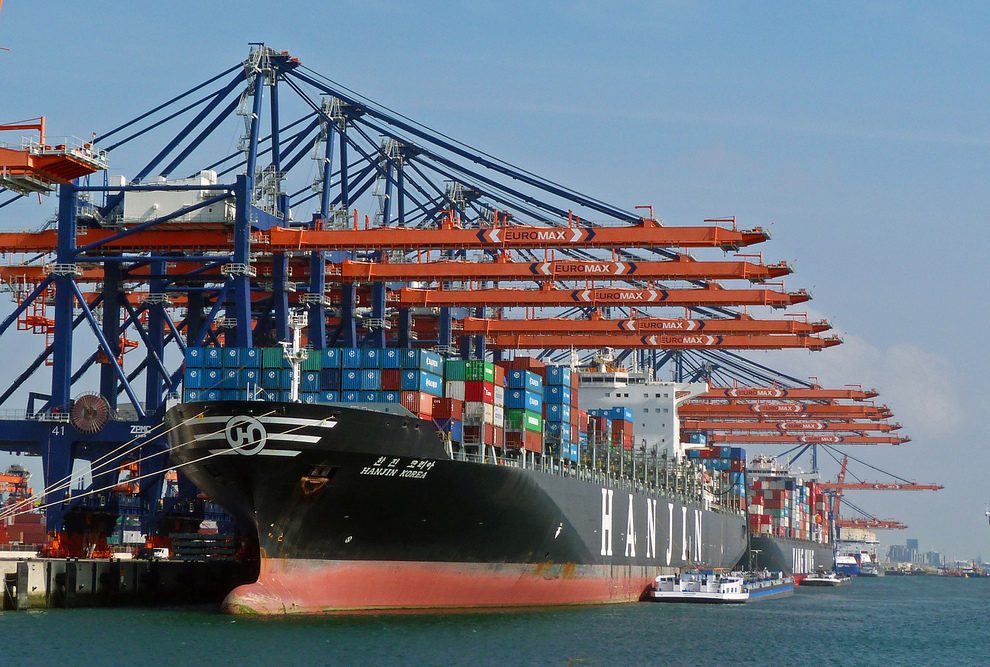Photo: Hanjin Shipping
 By Tom Hals
By Tom Hals
WILMINGTON, Del, Sept 23 (Reuters) – Failed South Korean container carrier Hanjin Shipping Co Ltd told a U.S. judge on Friday that cargo owners were withholding up to $80 million in payments for completed shipments, complicating the company’s ability to move stranded freight.
“Hanjin is not the only bad guy here,” Ilana Volkov, an attorney for the shipping company, said at a status hearing at a U.S. Bankruptcy Court in Newark, New Jersey.
Hanjin lawyers said that many cargo owners had received their goods on credit but have yet to pay the shipping company.
Hanjin, the world’s seventh-largest container carrier, filed for bankruptcy in August, stranding $14 billion worth of cargo at sea as the company lacked cash to pay cargo handlers, tug operators or ports.
South Korea’s government said on Friday that enough money had been pledged to unload Hanjin ships by the end of October.
An attorney for Ashley Furniture Industries, a Wisconsin-based furniture maker, told Friday’s hearing the company anticipated that costs related to Hanjin’s failure would eventually exceed what it owed for past shipments.
“To hold onto this money is important,” said Jeremy Ryan, the attorney for Ashley.
Like many retailers and other cargo owners, Ashley has been stuck paying to get its cargo from the dockside, even though Hanjin had been paid to deliver it to an inland destination.
In addition, many retailers and other cargo owners have complained they have been stuck with empty Hanjin containers that ports have been unwilling to take back.
Ryan said Ashley was paying up to $7,000 daily related to storage and other fees for the empty containers and the only way to recoup those costs was to refuse to pay Hanjin what was owed for completed deliveries.
Judge John Sherwood said he understood the need to “minimize the pain” of Hanjin’s collapse.
The judge told Hanjin’s attorneys the company was right in trying to get cargo moving “but there has to be some recognition you might be able to deliver on the terms you promised to deliver on.”
Rail operators and other cargo handlers defended themselves at Friday’s hearing against allegations they were price-gouging freight owners.
Hanjin had said in a court filing it was told that cargo handlers such as rail operators were charging more than what those handlers charged Hanjin. (Reporting by Tom Hals in Wilmington, Delaware; Editing by Richard Chang)
(c) Copyright Thomson Reuters 2016.

 Join The Club
Join The Club











